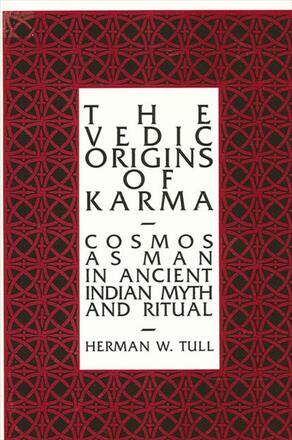
The Vedic Origins of Karma
Cosmos as Man in Ancient Indian Myth and Ritual
Alternative formats available from:
Description
In this book, the author seeks access to Karma's origins by following several clues suggested by the doctrine's earliest formulation in the Upanistexts (circa 600-500 B.C.) These clues lead back to the mythical and ritual structures firmly established in the Brahmana texts, texts concerned with the rituals that chronologically and conceptually precede the UpanisThe rise of the karma doctrine is tied to the increasing dominance in late Vedic thought of the cosmic man (Purusa/Prajapati) mythology and its ritual analogue the "building of the fire altar" (agnicayana).
Herman W. Tull is Assistant Professor of Religion at Rutgers University.
Reviews
"To anyone interested in the Vedic literature or the idea of karma, this book is fascinating. The prose is crisp and clear, well-ordered and lively. The arguments are clearly presented. Tull shows convincingly that the beginning of karma theory are to be found in the Brahmanas. And he helps us to see the logic of these texts more clearly than anyone else." -- John M. Koller
"The book is clearly written and organized. He uses primary materials intelligently and raises questions of significance. The author discusses some of the central areas in the study of Hinduism: the idea of karma, the relationship of the Upanisto the rest of the Veda, the interpretation of the Upanisand the meaning of the Vedic rites. He also challenges a number of received views, especially concerning the interpretation of karma in the Upanisand offers alternatives which are quite provocative. He lays out his arguments and evidence in a way that allows his readers to evaluate them." -- Joel P. Brereton